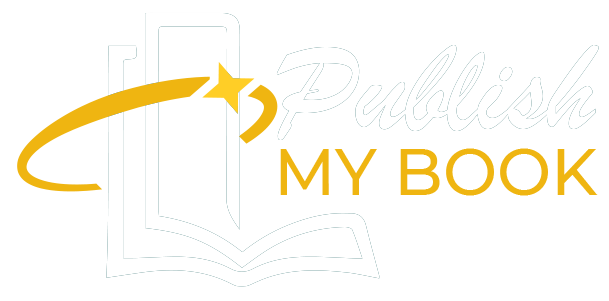
You’ve got the idea. Maybe it came to you in a dream or after a cup of strong coffee on a quiet morning. It could be a twisty thriller, a heartfelt memoir, or a fantasy epic that has lived in your head for years. That story wants out. But when you sit down to write, it can feel like stepping into a storm with no compass. That is where a book writing website can make all the difference. These digital platforms offer tools, templates, and sometimes even entire communities to help shape your book from a chaotic idea into a polished manuscript.
Still, not all book writing websites are created equal. It has to fit your style, support your steps, and feel just right for the journey you are about to take. A romance novelist might need character development tools, while a nonfiction writer may crave research integration. What works for one genre might be totally wrong for another. Finding a writing website that genuinely supports your genre might be made easier with the help of our tips. Because at the end of the day, you are not just writing words. You are building worlds, revealing truths, and creating something that just might change a reader’s life.
1. Book Writing Website: Understand What Your Genre Demands
Every genre has its own rhythm. Thrillers thrive on tight pacing and twists. Memoirs lean into emotion and introspection. Fantasy builds entire universes. Before you even start looking at websites, take time to consider what your genre really needs. Ask yourself:
- Do I need help with world-building or research?
- Will my writing benefit from character templates or scene planners?
- Am I aiming for traditional book publishers or planning to self publisher?
Knowing what your genre requires helps narrow down which platforms will support your workflow rather than hinder it.
2. Look for Genre-Specific Tools and Templates
Some Ebook publisher writing websites are designed for general use, while others offer genre-specific resources. For example, a fantasy writer may appreciate world-building tools, while a mystery writer might benefit from chapter timeline visualizations. Here are a few examples of helpful features by genre:
- Fantasy and Sci-Fi: Map builders, naming generators, lore organization
- Romance: Character chemistry charts, relationship arcs
- Thriller and Crime: Timeline planners, clue trackers
- Nonfiction and Memoirs: Research organizers, citation tools
3. Community Matters More Than You Think
Writing is often a solitary act, but having a tribe of like-minded creators can be the difference between finishing your book or burning out halfway through. Choose a platform that has a vibrant and active community. Many writing websites have genre-based forums or groups where writers can share tips, exchange feedback, or just vent about plot holes. Especially for new authors hoping to connect with book publishers someday, these communities can provide valuable networking opportunities and support. You might even find your future editor or writing partner there.
4. Compatibility with Book Publishers and Export Options
No matter your path, traditional publishing or self publishing, your writing platform should make it easy to export your work in standard formats. Look for websites that allow you to export your manuscript in DOCX, PDF, or ePub formats. Some even offer direct publishing tools or connections to book publishers and distributors. If your goal is to pitch your book to agents or publishers, clean formatting and proper file structure can leave a great first impression.
5. Test Drive Before You Commit
Many book writing websites offer free trials or limited free versions. Use this chance to play around. Try drafting a few scenes or importing an outline. See how intuitive the layout feels. You want a website that becomes invisible while you write one that works for you rather than making you work for it.
During your trial, pay attention to:
- Speed and responsiveness
- Autosave features
- Ease of organizing scenes or chapters
- Distraction-free writing modes
Trust your gut. If a platform feels clunky or uninspiring, keep looking. The right fit should spark your creativity, not stifle it.
6. Consider Long-Term Growth and Features
A great book writing website will grow with you. Maybe you’re starting with a single novel, but planning to create a trilogy or branch into another genre later.
Look for platforms that offer:
- Multi-project management
- Goal tracking
- Collaboration features
- Integration with book publishing tools
Also, consider how often the site is updated. A platform that’s constantly improving shows commitment to writers’ needs over time.
7. Book Writing Website: Pricing Should Match Your Needs
Not all writers have the same budget. Some platforms charge monthly or annually, while others work on a one-time payment model.
Ask yourself:
- Is this worth the investment for my writing career?
- Am I paying for features I won’t use?
- Can I upgrade later if needed?
If you’re just starting out, a free or low-cost option may be enough. But if you’re serious about publishing or already working with book publishers, investing in a premium tool could be worthwhile.
In the end, choosing a book writing website is not just a technical decision. It’s creative. It’s personal. The best platform for you will feel like an extension of your writing brain. It will anticipate your needs, support your structure, and keep your ideas flowing smoothly. Whether you’re chasing book publishers or writing for yourself, the right tool will help you stay focused on what matters most telling your story. Your genre is the fingerprint of your writing. Once you find that perfect fit, the writing gets easier, the motivation gets stronger, and the pages begin to fill. So explore your options, test the waters, and trust your instincts.
